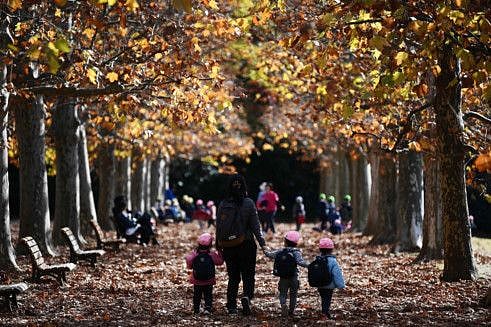Tokyo: Japan has 512,000 fewer people this year than last, according to an estimate released on Tuesday by the country’s welfare ministry. That’s a drop of more than the entire population of the city of Atlanta.
The numbers are the latest sign of Japan’s increasing demographic challenges.
Births in the country - which are expected to drop below 900,000 this year - are at their lowest figure since 1874, when the population was about 70 per cent smaller than its current 124 million.
The total number of deaths, on the other hand, is increasing. This year, the figure is expected to reach almost 1.4 million, the highest level since the end of the Second World War, a rise driven by the country’s increasingly elderly population.
That gap between births and deaths has put Japan in a demographic squeeze. As the number of births go down, there are fewer young people entering its workforce. That means fewer people to replace retiring workers and support them as they age, a situation that poses a serious threat to Japan’s economic vitality and the security of its social safety net.
Japan is not the only country facing the problem of how to cope with a shrinking society. It’s not even the country with the lowest birthrate: That title goes to South Korea. And other countries - from China to the United States - also face declining birthrates, which could spell trouble down the road.
But Japan is the world’s greyest nation: Almost 28 per cent of its residents are over 65.
Japan has had some time to address the effects of its declining population: The country has been consistently shrinking since 2007. That year, the country’s population dipped by around 18,000 people. Since then, however, the losses have rapidly accelerated, crossing the half-million mark this year for the first time. Across the nation, whole villages are vanishing as young people choose not to have children or move to urban areas in search of better employment opportunities.
Sign up for the Daily Briefing
Get the latest news and updates straight to your inbox
Network Links
GN StoreDownload our app
© Al Nisr Publishing LLC 2026. All rights reserved.
